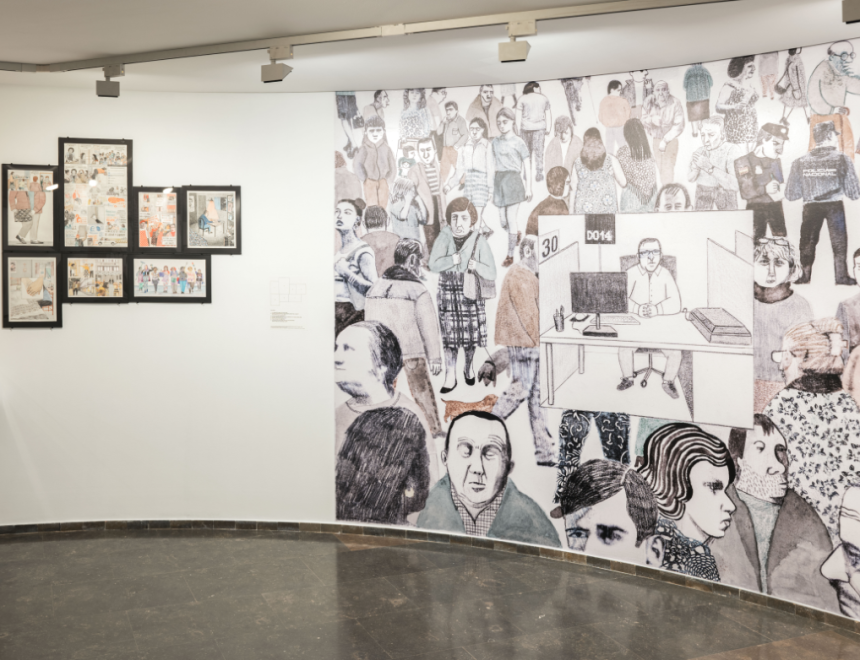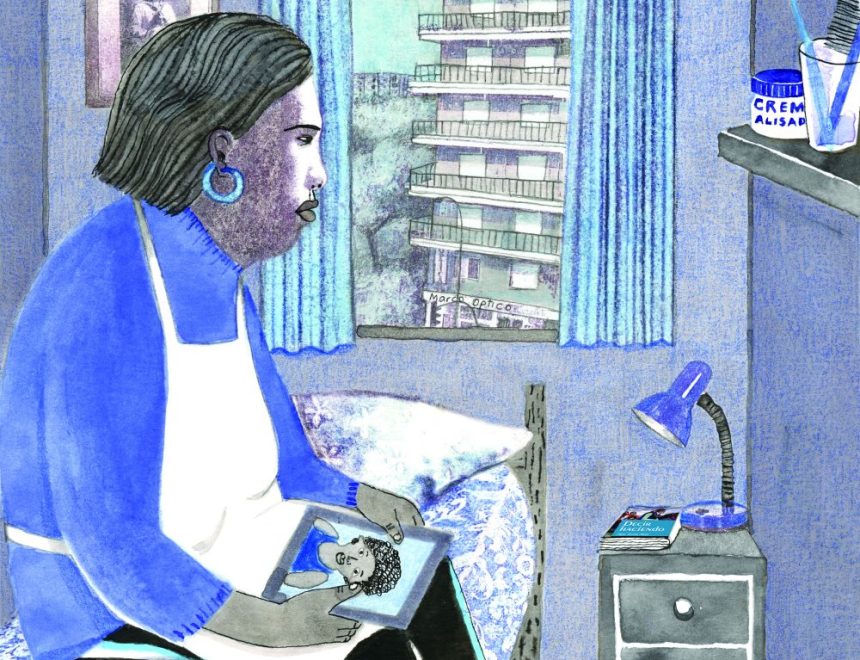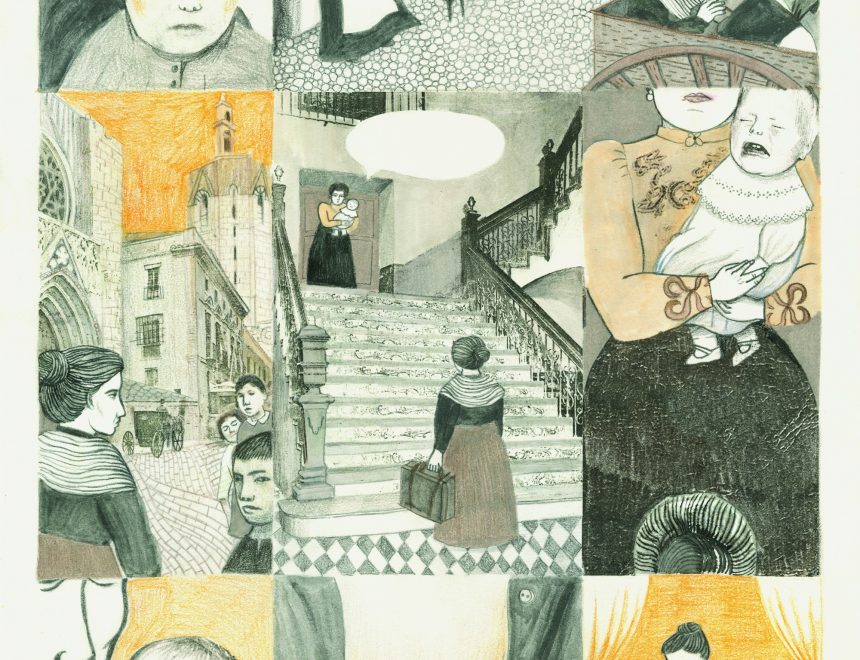Ana Penyas and Alba Herrero. In a house
Genealogy of domestic labour and care
In a house, the project by Alba Herrero (València, 1986) and Ana Peñas (València, 1987) was conceived specifically for Gallery 3 at IVAM. It introduces the hybrid nature between the graphic narrative and social research and focuses on housework and domestic work, carried out away from one’s own home, in the privacy of someone else’s home, whether or not this is part of the formal or informal economy. This is a feminised and insecure type of work, where the social construct of its responsibility is mirrored as an inherently female matter. Despite the centrality of this work to the sustainability of life, historically, it has been invisible and displaced within areas such as economics and politics, which today leads us to collectively ask, how do we look after homes and how would we like to do so?
The imaginary stereotypes and ways of naming this work have changed throughout history according to political and cultural changes: from domestic service linked to the rural exodus during the Francoist dictatorship under the nationalist-Catholicism model, to the origin of the current domestic workers and their relationship with the global links in domestic work. The approach to these practices has varied, becoming more complex as the feminist stance has also made it so and the collective organisation of the sector’s workers has advanced.
In a house proposes a review of the personal and the political. From archive materials and the life experiences of women, domestic workers of different ages and backgrounds. It is mostly about domestic work, but also about the employers. The event covers the temporal, spatial and social changes linked to this work. By doing so, it emphasises the social inequalities that occur within these processes. Through different formats – an exhibition, a publication and various public activities – an open re-reading of the family and domestic work models is proposed, the trajectories of collective mobilisation for the recognition of dignified rights and work conditions and the motivations and living expectations of those doing this type of work and those receiving it. In short, this is about the social organisation of domestic work.
With the support of:






